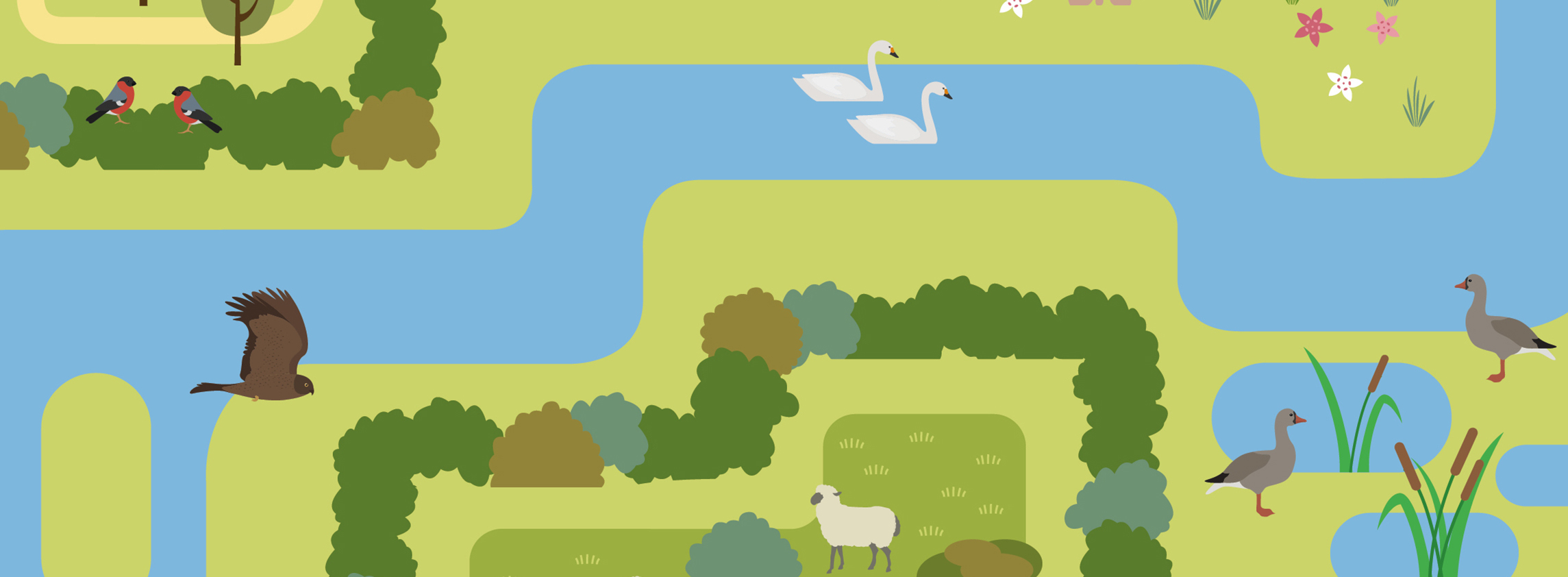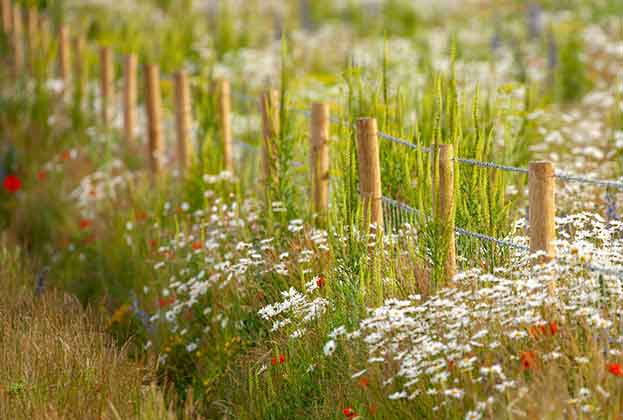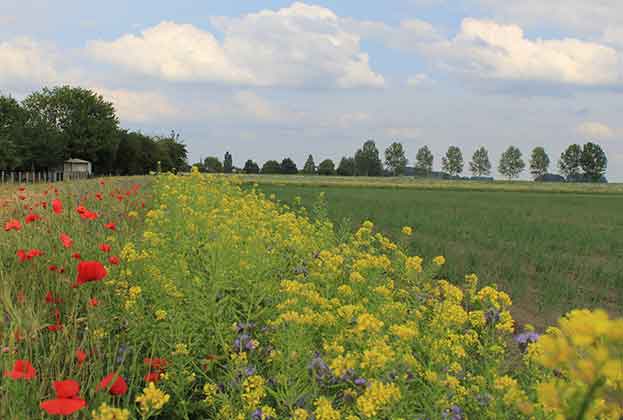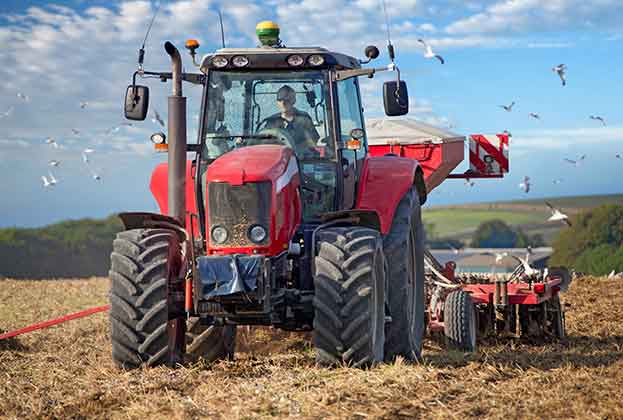Investing in nature to tackle the challenges facing society
We look at how restoring natural ecosystems can provide solutions
The year 2022 was notable for all the wrong reasons. An onslaught of winter storms brought some of the most damaging winds on record, the UK endured its hottest summer temperature yet and incidents of water pollution significantly increased, all while global wildlife populations continue to decline. The complex and interrelated impacts of the biodiversity and climate crises are now being felt in our fields and on our doorsteps. Former prime minister Margaret Thatcher famously said we have only a full repairing lease on the planet, and the evidence suggests there is a big dilapidations claim coming.
Business is starting to look at the investment case for nature in a different way. Economic growth has been reliant on the extraction of resources from nature, yet natural systems can provide valuable services as well as resources. Increasingly, investment in these services, known as nature-based solutions, are proving to be a cost-effective method of tackling the environmental challenges we face.
The complex and interrelated impacts of the biodiversity and climate crises are now being felt in our fields and on our doorsteps
Emily Norton, Head of Rural Research
This Spotlight examines the leading examples of nature-based solutions for land managers in the UK, plus the underlying drivers for environmental action, sources of finance and the services that nature can offer in both urban and rural settings.
GLOSSARY OF TERMS
- Natural capital: The world’s stock of natural resources, including geology, soils, air, water and all living organisms.
- Ecosystem services: The benefits to society that flow from natural capital, for example, food and fibre, carbon sequestration, pollination, water regulation, recreation and wellbeing.
- Nature-based solutions: Actions to protect, restore and sustainably use ecosystems and natural resources to address social, economic and environmental challenges.
- Net zero: Cutting greenhouse gas emissions to as close to zero as possible, with any remaining emissions re-absorbed from the atmosphere.
- Nature positive: Creating more biodiversity than is destroyed, so that species and ecosystems begin to recover.
- Climate positive: Business action, policy decision or personal action that has a positive effect on the climate’s carbon balance.
OPPORTUNITIES
Nature-based solutions are as diverse as the landscapes themselves. Here are some key ones relevant to UK land managers, which we score out of five – see below:
Renewable energy generation
Using wind, solar, hydro and biofuels to generate renewable power. This energy is then sold to the grid or through local district energy networks.
- Customer demand (4)
- Accessibility (2)
- Policy support (3)
- Profitability (5)
- Market maturity (5)
Habitat enhancement
Restoring or building new habitats to create resilient ecosystems that support a diversity of species. This can be monetised by selling biodiversity units to developers or offsetters.
- Customer demand (2)
- Accessibility (3)
- Policy support (4)
- Profitability (3)
- Market maturity (1)
Regenerative agriculture
Adopting regenerative agriculture principles, which increases carbon sequestration and environmental resilience. This can be financed through agri-food supply chains that value sustainable production, public grants, or by selling certified carbon credits.
- Customer demand (4)
- Accessibility (3)
- Policy support (4)
- Profitability (3)
- Market maturity (2)
Native woodland creation
Planting new woodland can be monetised by selling verified carbon credits for the carbon sequestered by the growing trees. There is the possibility to sell other additional ecosystem services bundled with these credits, for example, flood management, water cooling and biodiversity uplift.
- Customer demand (5)
- Accessibility (4)
- Policy support (5)
- Profitability (2)
- Market maturity (3)
MAKING SENSE OF NATURE-BASED SOLUTIONS
The UK’s rural sector has a new and valuable role to play in delivering environmental improvements. However, the line between opportunity to deliver and liability for not delivering is thin. Rural businesses are facing a rising environmental baseline from supply chains and from financiers such as banks, as a condition on being able to do business (see figure 3).
Farmers need to be sure that they are entering into opportunities with the right long-term intentions
Emily Norton, Head of Rural Research
Delivering nature-based solutions for other businesses, such as developers, water companies or investors, provides rural businesses with an opportunity to tap into revenue streams and support farm incomes, but it also introduces constraints on the land. Farmers need to be sure that they are entering into opportunities with the right long-term intentions. The best strategy is to ensure that any income generated by grants or nature-based services provided to others is invested back into sustainable land management and restoring natural capital across the whole farm, to increase long-term business resilience and ensure the farm is fit to meet rising compliance baselines.
SCOTLAND’S PRINCIPLES FOR RESPONSIBLE INVESTMENT IN NATURAL CAPITAL
The Scottish government has committed to developing a “values-led, high-integrity market for responsible investment in natural capital”. As part of that commitment, the government has launched six core principles to guide those developing and investing in nature-based solutions. The interim principles promote high environmental integrity, community benefit and integrated, productive land use. They provide clarity and direction for stakeholders, helping to grow this emerging marketplace. The recent Rock Review of agricultural tenancies recommends that England does the same.
Read the articles within Spotlight: Nature-based solutions below.




